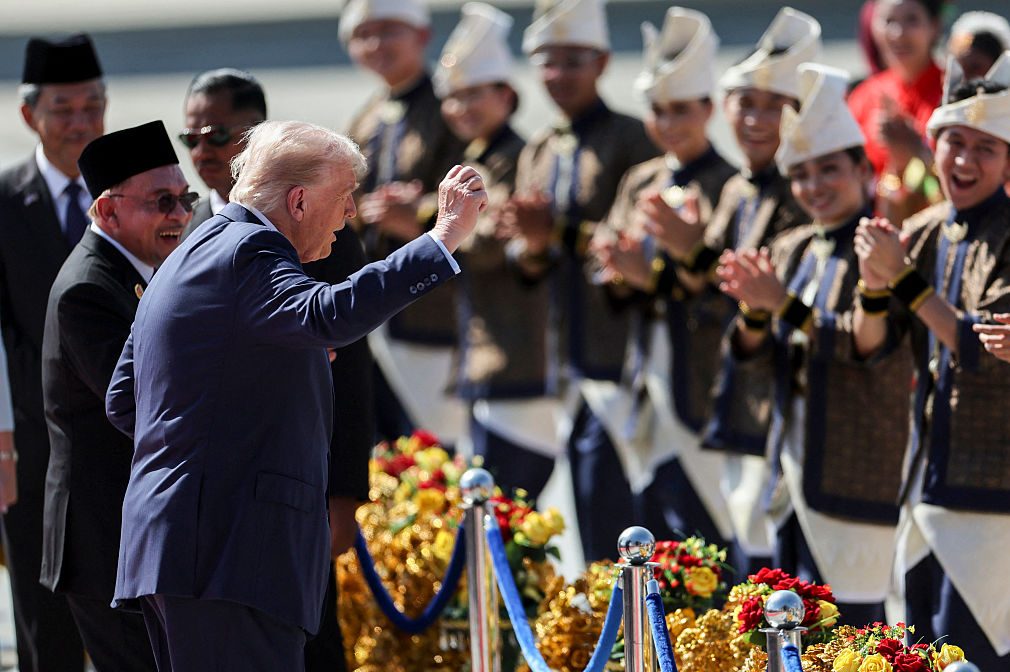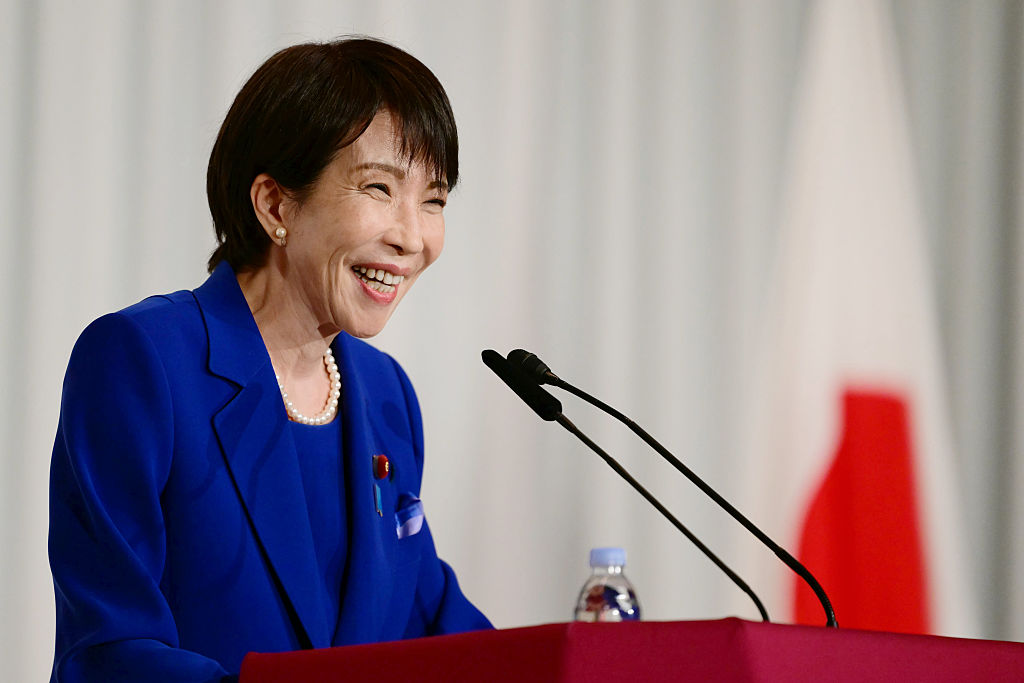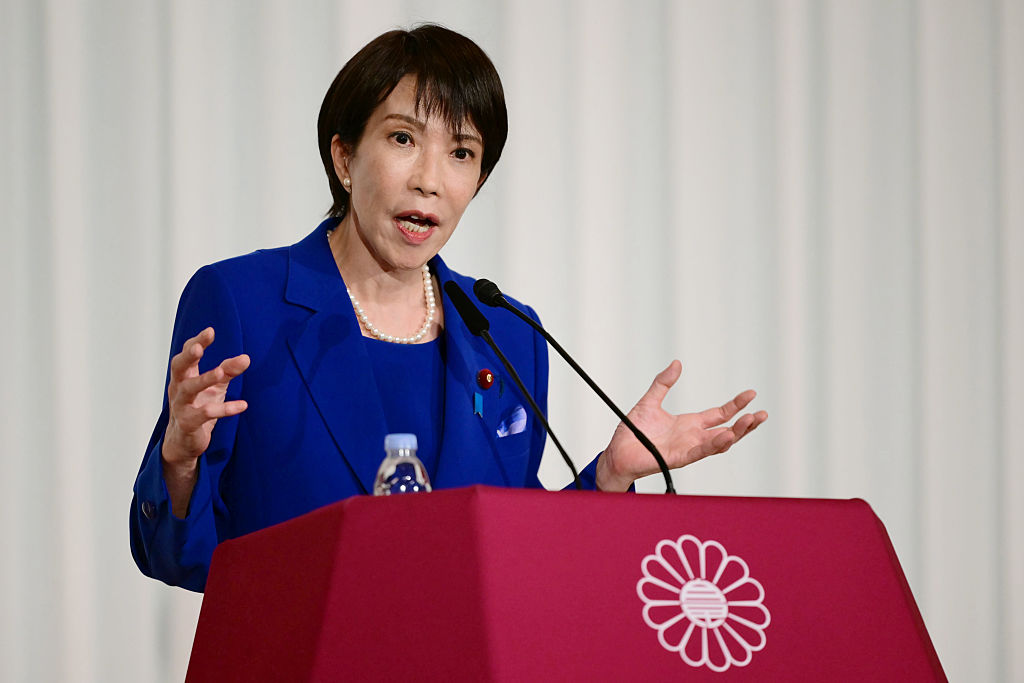It had all started so well for Naomi Osaka. Dressed in the colors of the Japanese flag, the tennis star was given the signal honor of lighting the cauldron in Friday’s opening ceremony at the Tokyo Olympics. She was presented as a symbol not only of Japan, but also of the Olympic movement’s self-proclaimed diverse and progressive philosophy. Yet her hopes of glory were extinguished just four days later after an error-strewn performance against world number 42 Markéta Vondroušová.
Her underwhelming Olympic adventure prompted words of sympathy from many. US gymnast Simone Biles, who had her own disappointment to deal with, cited Osaka as an ‘inspiration’. The novelist Yuji Taida said, ‘You don’t need to win a medal. Watching you play is enough.’ But there was plenty of sniping too. There were reports of booing among gatherings of Tokyoites as she appeared in the stadium as flame lighter (Rikako Ikee who had recovered from leukemia to compete was the popular choice).
The Japanese, it seems, remain ambivalent about Naomi Osaka, and unsure whether to treat her as one of their own. It is not so much her mixed-race parentage (Haitian father and Japanese mother) — Japan has taken numerous mixed-race idols into their hearts, including bubbly supermodels Lola and Becky and the singer Crystal Kay. Nor is it the fact that she is based abroad — as are Haruki Murakami and Kazuo Ishiguro, without evident loss of popularity or esteem. What seems to confuse people is her behavior and her demeanor. The Japanese are used to homegrown talent performing on the world stage as unofficial ambassadors in a discrete, dignified (some would say boring) manner. And Naomi is just not like that.
A good example of the perfect Japanese sporting role model who straddled East and West successfully would be Ichiro Suzuki. One of the greatest baseball players ever — though you may never have heard of him — Suzuki played 20 hugely successful seasons in the MLB without courting any controversy whatsoever. He retained close links with Japan. He had numerous commercial contracts with Japanese companies but was reluctant to endorse American brands. He has been involved in charitable endeavors (giving a substantial sum to the Tohoku earthquake relief fund) but has never involved himself in political activism.
It was never going to be like that with Naomi Osaka. Having lived only her first three years in Japan, she wasn’t processed by the Japanese education system (in many ways a finishing school, designed to produce model citizens). She is apparently not yet fluent in the language, although says she does understand much of it. The importance of this to the Japanese was shown by the praise Osaka received for answering a few questions with a simple ‘Hai’ (yes) in interviews at the Games. Ichiro by contrast, though a proficient English speaker, still tends to use Japanese (and translators) when speaking to the press.
Then there is Osaka’s personality and her activism — including her personal issues and her endorsement of BLM. In the West, many see that as refreshingly open. But in a society where social interaction is still governed by a complex system of etiquette, where modesty and self-effacement are prized, unpredictable behavior, and expressions of views outside the remit of your profession, can be unsettling. Naomi Osaka clearly has her good days and her bad days, on and off-court, and is honest about it — as she is about her politics. This openness, which, depending on your viewpoint could be either inappropriate or even ‘arrogant’ (Piers Morgan), or just a sincere expression of youthful idealism and vulnerability, is problematic for some here.
The organizers of Tokyo 2020 were clearly hoping that Osaka would serve to galvanize domestic support for this much-derided Olympics. Her first-round match was even postponed in order for her to recover fully after her flame lighting exertions. Osaka seems to have invested heavily in the games too, renouncing her American citizenship in 2019 in order to compete for Japan. She is clearly committed to the country. But, in the end, though she was welcomed warmly enough, she was not greeted as a prodigal daughter; and her early exit was not met with nationwide dismay.
Although they are too polite to say so (barring some online abuse) some might even sympathize with Will Swanton in the Australian who wrote that Osaka should not have been chosen to light the torch, describing her as a ‘blow in’ (she flew from Florida to compete in the games). He suggested she had little connection with the Japanese fans, was a self-professed ‘global citizen’ and that if she were to represent any country it should have been America.
That might be a little over the top, but so perhaps was projecting Osaka as a symbol of both Japan and the Olympic ideal. The player herself might even agree. ‘You can never please everyone,’ she once wrote in an essay for TIME. Perhaps she should stop trying?
This article was originally published on The Spectator’s UK website.

























